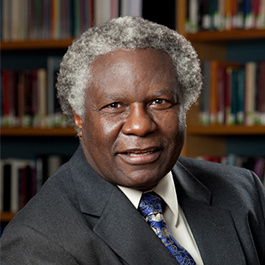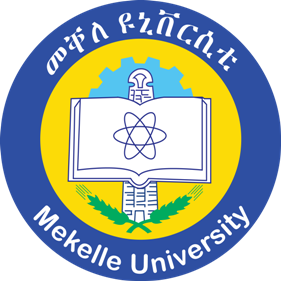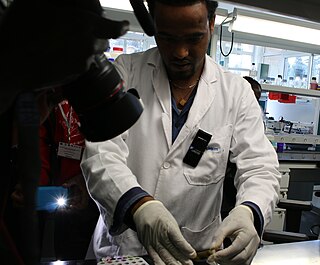
Addis Ababa is the capital and largest city of Ethiopia. In the 2007 census, the city's population was estimated to be 2,739,551 inhabitants. Addis Ababa is a highly developed and important cultural, artistic, financial and administrative center of Ethiopia and is widely known as one of Africa's capitals

Addis Ababa University (AAU) is a national university located in Addis Ababa, Ethiopia. It is the oldest university in Ethiopia. AAU has thirteen campuses. Twelve of these are situated in Addis Ababa, and one is located in Bishoftu, about 45 kilometres (28 mi) away. AAU has several associated research institutions including the Institute of Ethiopian Studies. The Ministry of Education admits qualified students to AAU based on their score on the Ethiopian University Entrance Examination (EUEE).

Ethiopia is a federation subdivided into ethno-linguistically based regional states and chartered cities. This system of administrative regions replaced the provinces of Ethiopia in 1992.

Calestous Juma was a Kenyan scientist and academic, specializing in sustainable development. He was named one of the most influential 100 Africans in 2012, 2013 and 2014 by the New African magazine. He was Professor of the Practice of International Development and Faculty Chair of the Innovation for Economic Development Executive Program at Harvard Kennedy School. Juma was Director of the School's Science, Technology and Globalization Project at Harvard Kennedy School as well as the Agricultural Innovation in Africa Project funded by the Bill and Melinda Gates Foundation.
Emerging technologies are technologies whose development, practical applications, or both are still largely unrealized. These technologies are generally new but also include older technologies finding new applications. Emerging technologies are often perceived as capable of changing the status quo.

Jimma University (JU) is a public research university located in Jimma, Oromia Region, Ethiopia. It is recognized as the leading national university, as ranked first by the Federal Ministry of Education for four successive years (2009–2012). The establishment of Jimma university dates back to 1952 when Jimma College of Agriculture was founded. The university got its current name in December 1999 following the amalgamation of Jimma College of Agriculture and Jimma Institute of Health Sciences.
Hubert Jacob Paul Schoemaker was a Dutch biotechnologist. He was a co-founder and the president of one of America's first biotechnology companies, Centocor, which was founded in 1979 for the commercialising of monoclonal antibodies. In 1999 he founded Neuronyx, Inc., for the manufacture of stem cells and the development of stem-cell therapies.
The Institute on Biotechnology and the Human Future (IBHF) is an affiliate of the Illinois Institute of Technology (IIT) and is housed at IIT's Chicago-Kent College of Law. The IBHF was founded in 2004 by Lori Andrews, J.D., and Nigel M. de S. Cameron, Ph.D., to discuss and analyze the ethical, legal, and social implications of biotechnologies.

Mekelle University is a higher education and training public institution located in Mekelle, Tigray Region, Ethiopia, 783 kilometers north of Ethiopia's capital, Addis Ababa. Mekelle University is one of the largest public universities in Ethiopia. It has seven colleges, eight institutes, and more than 90 undergraduate and 70 postgraduate programs. The student intake capacity of Mekelle University has reached 31,000 or 10% of Mekelle's population.
The Department of Biotechnology (DBT) is an Indian government department, under the Ministry of Science and Technology responsible for administrating development and commercialisation in the field of modern biology and biotechnology in India. It was set up in 1986.

The University of Science and Technology is a group of public research institutions in Seoul, Suwon, Changwon, Ansan, Seongnam and Daejeon, etc, in South Korea. UST is the leading government-funded research university dedicated to the synergistic effects of research and education in Science and Technology. The UST was established in 2003 by the Ministry of Science, ICT and Future Planning as the nation’s graduate school specializing in science and engineering education and research. The UST runs only a graduate school. Creating the new driving force for growth would play a major role in leading national growth in the new century. The South Korean government established the UST to produce professionals in the field of combined technologies, thought of as one of the most important criteria for creating the driving force for South Korea's national growth. Today, UST continues to develop itself into a major research university.

David L. Gollaher was the founding President & CEO of the California Healthcare Institute (CHI), 1993–2014, from which he joined Gilead Sciences. Initially, in 1998, he was a charter member of Gilead's Health Policy Advisotry Board, then, from 2014 to 2018, he served as the company's head of worldwide Government Affairs and Policy. Subsequently, in early 2019, he was appointed Senor Vice President of global policy and government affairs at Vir Biotechnology, an emerging growth biotech company focused on infectious diseases. He retired from Vir in 2021. Previously, in 2018, he was named Senior Fellow at the Leonard D. Schaeffer Center for Health Policy and Economics at the University of Southern California.

The MIT Center for International Studies (CIS) is an academic research center at the Massachusetts Institute of Technology. It sponsors work focusing on international relations, security studies, international migration, human rights and justice, political economy and technology policy. The center was founded in 1951.

Ponnaiyah Ramajayam Institute of Science and Technology (PRIST) is a private and deemed university in Vallam Thanjavur, India. The institute offers undergraduate and postgraduate courses in Engineering, Science, Education, Management, Arts, and Law, as well as research programmes. The institute has campuses in Trichy, Kumbakonam, Puducherry, Chennai, and Madurai. Ponnaiyah Ramajayam Institutions is a group of colleges in Tamil Nadu.
Shalva Weil is Senior Researcher at The Seymour Fox School of Education at the Hebrew University of Jerusalem, Israel, and Life Member at Clare Hall, University of Cambridge, UK. In 2017, she was GIAN Distinguished Professor at Jawaharlal Nehru University, in New Delhi. She has researched Indian Jews, Ethiopian Jews, Baghdadi Jews, the Ten Lost Tribes and Femicide.

The Ministry of Innovation and Technology (MinT) is an Ethiopian government department responsible for science and technological development in Ethiopia as well as a governing body of communications. It was established as a commission in December 1975 by directive No.62/1975. The current minister is Belete Molla since 2021.
Susan RosserFRSB FLSW is a professor of Synthetic Biology at the University of Edinburgh.

Brazil–Ethiopia relations are the current and historical relations between Brazil and Ethiopia. Both nations are members of the Group of 77, BRICS and the United Nations.
The Ethiopian Space Science and Technology Institute (ESSTI) is an Ethiopian institute for research, training and infrastructure development in space science, created in 2016.

Ethiopia has a number of government and other institutions that are responsible for supporting scientific and technological innovation, including the Ministry of Innovation and Technology, the Ministry of Science and Higher Education (Ethiopia), the Science and Technology Information Center and the Ethiopian Space Science and Technology Institute.












